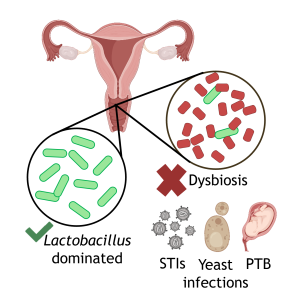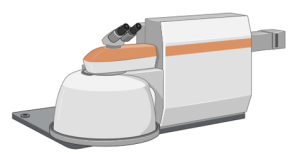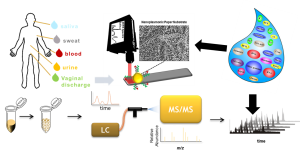Research Projects
Overview
The Locke Biosensing lab is dedicated to designing point-of-care diagnostic tools using light-based technologies and nanoplasmonic structures that can detect and monitor diseases rapidly and noninvasively. We also focus on understanding current clinical needs, including those in low-resource settings, through various clinical and interdisciplinary collaborations.
Our Research Includes
Women’s Health: Bacterial Dysbiosis
 Annually, 30-50% of women globally are affected by vaginal dysbiosis, with a high recurrence rate. If pregnant, dysbiosis can lead to a high risk of premature birth, neonatal sepsis, and miscarriages. It is also associated with a high risk of sexually transmitted infections and urinary tract infections. Currently, there is a lack of routine monitoring tools for early detection of the vaginal microbiome breakdown caused by vaginal dysbiosis. Our group seeks to evaluate the use of surface-enhanced Raman spectroscopy and fluorescence spectroscopy to identify the good and bad pathogens of the vaginal microbiome for rapid, culture-free detection.
Annually, 30-50% of women globally are affected by vaginal dysbiosis, with a high recurrence rate. If pregnant, dysbiosis can lead to a high risk of premature birth, neonatal sepsis, and miscarriages. It is also associated with a high risk of sexually transmitted infections and urinary tract infections. Currently, there is a lack of routine monitoring tools for early detection of the vaginal microbiome breakdown caused by vaginal dysbiosis. Our group seeks to evaluate the use of surface-enhanced Raman spectroscopy and fluorescence spectroscopy to identify the good and bad pathogens of the vaginal microbiome for rapid, culture-free detection.
This project is in collaboration with the Vanderbilt Center for Women’s Health (Dr. Emad Elsamadicy, Department of Obstetrics and Gynecology).
Detection of Mycobacterium tuberculosis and other infectious agents
 The high burden of hospital visits and morbidity caused by the increased prevalence of infectious diseases calls for faster, improved diagnostic technologies. However, some pathogens like Mycobacterium tuberculosis are challenging to culture or detect in low abundance. Our group uses optical spectroscopy and machine learning tools for culture-free identification of pathogens (i.e., bacteria, fungi, etc.) in biofluids.
The high burden of hospital visits and morbidity caused by the increased prevalence of infectious diseases calls for faster, improved diagnostic technologies. However, some pathogens like Mycobacterium tuberculosis are challenging to culture or detect in low abundance. Our group uses optical spectroscopy and machine learning tools for culture-free identification of pathogens (i.e., bacteria, fungi, etc.) in biofluids.
Salivary Metabolomics

Pediatric Eosinophilic Esophagitis and other Esophageal Diseases
Eosinophilic Esophagitis (EoE) is a chronic immune-mediated disease that affects the esophagus. In late stages, this allergy-associated condition causes chronic dysphagia and food impaction, requiring immediate endoscopic intervention. However, in pediatric cases, the symptoms are less distinguishable from other esophageal disorders (i.e., Gastroesophageal reflux disease). The current clinical approach requires a two-step process that is burdensome, especially for young children. Therefore, this project aims to design a novel biomarker detection platform for non-invasive monitoring of EoE. To accomplish this goal, we use mass spectrometry to 1) explore the relationship between salivary metabolites and active EoE and 2) explore optical analytical tools to design point-of-care diagnostic tools.
This project is in collaboration with Monroe Carell Jr. Children’s Hospital at Vanderbilt University Medical Center (Dr. Girish Hiremath, Department of Pediatric Gastroenterology, Hepatology, and Nutrition).
The Locke Lab is also part of the larger Vanderbilt Biophotonic Center (VBC)
The VBC mission is to establish a trans-institutional initiative in biophotonics research, technology development and education at Vanderbilt University.